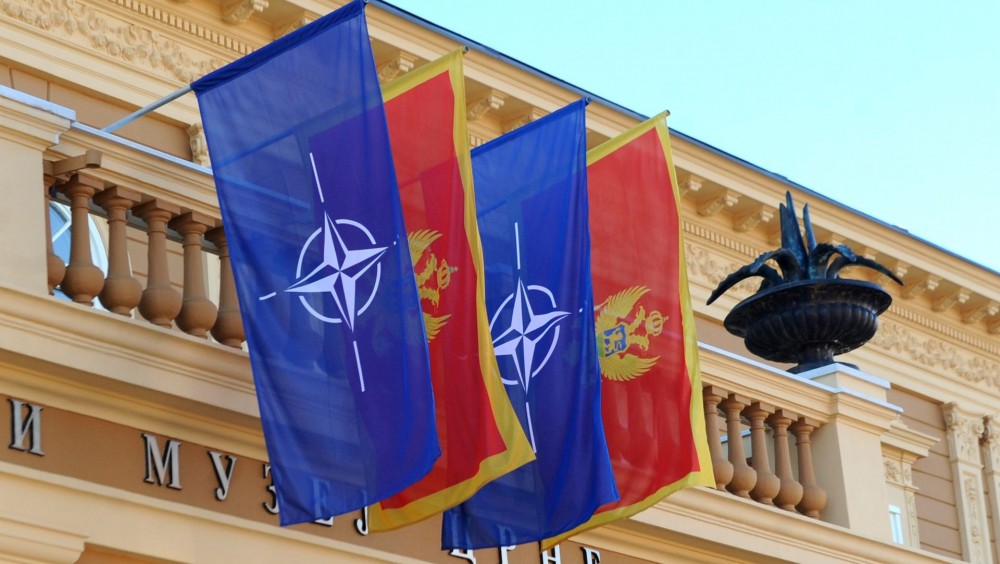
Nova geopolitička realnost na Zapadnom Balkanu
Crna Gora u NATO: Zaokruživanje sistema kolektivne bezbednosti
Uprkos kontradiktornim stavovima proruskih i antizapadnih krugova u regionu koji se kreću u širokoj amplitudi od histeričnog protivljenja pa sve do zajedljivog osporavanja bilo kakvog značaja formalnog prijema Crne Gore u članstvo NATO-a, ovaj događaj predstavlja jedan od prelomnih momenata za budućnost Zapadnog Balkana u celini. Bez obzira na veličinu i relativno skromne vojne potencijale Crne Gore u poređenju sa kapacitetima NATO-a, geostrateški značaj prijema nove balkanske članice u redove Severnoatlantskog saveza daleko prevazilazi čisto vojnu komponentu tog čina, a specifična konstelacija geopolitičkih faktora u regionu Zapadnog Balkana, poslednje proširenje Alijanse čini istorijskim trenutkom koji predstavlja onaj tas na vagi koji će odlučujuće uticati na smer daljeg toka procesa stabilizacije, demokratizacije i izgradnje regionalnog sistema kolektivne bezbednosti. Pored nesumnjive činjenice da je prijemom nove članice u svoje redove NATO, u geostrateškom smislu, zatvorio takozvani balkanski bezbednosni prsten, ovaj događaj će imati presudan uticaj i na stratešku orijentaciju ostalih regionalnih igrača, ali i na značajno umanjivanje mogućnosti spoljnih, nebalkanskih aktera da destabilizuju ovaj deo sveta.
Uspešno okončanje procedure formalnog prijema Crne Gore kao 29 članice NATO-a [1] predstavlja svojevrsnu krunu procesa postkonfliktne tranzicije u regionu koji je, po okončanju Hladnog rata, duže od decenije proveo u sveopštoj destrukciji i brojnim oružanim konfliktima. Nakon zbacivanja agresivnog i ratnim opcijama suviše sklonog režima Slobodana Miloševića, koji je devedesetih godina prošlog veka bio učesnik u gotovo svim konfliktima na prostoru bivše Jugoslavije i koji je u svom krvavom piru na kraju morao biti zaustavljen vojnom intervencijom NATO-a, bilo je neophodno uložiti ogromne napore, uz stalni nadzor i aktivno prisustvo međunarodne zajednice, kako bi se prilike u ovom regionu koliko-toliko stabilizovale i politički procesi uveli u regularne tokove.
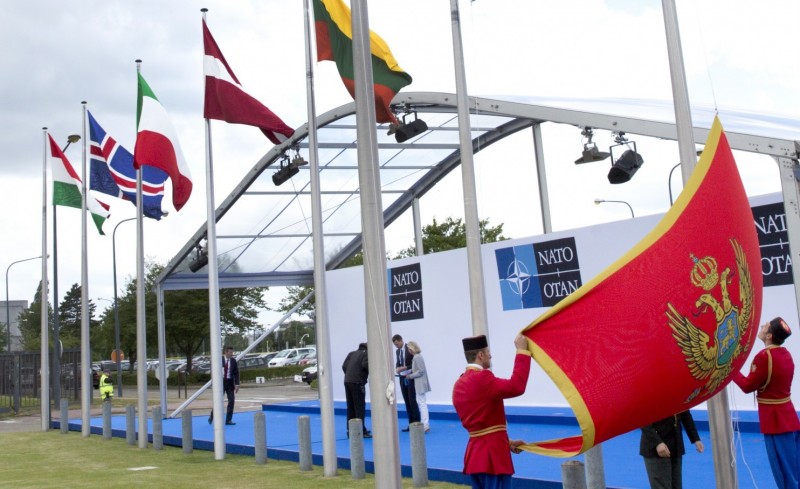
I dok se pretežni deo regiona, bez velikog kolebanja, jasno opredelio za integraciju u strukture evroatlantske zajednice, Srbija kao zemlja sa ozbiljnim potencijalom kako za stabilizaciju tako i za izazivanje ekscesa u regionu, ostala je zarobljena u nepremostivom jazu između racionalnih bezbednosnih opcija koje joj stoje na raspolaganju i još uvek neprevaziđenih frustracija nastalih kao posledica poraza pretrpljenog tokom NATO intervencije 1999. godine. Kao politički izraz ovog nerešivog dualizma koji pritiska srpsko društvo, nastao je koncept takozvane vojne neutralnosti zemlje, koji se protokom vremena sve više pretvarao u okoštalu kvaziinstitucionalnu prepreku za buduće eventualno članstvo Srbije u NATO-u.
Odbijanje predominantnog dela javnosti i ključnih političkih aktera u Srbiji da prihvate realnost da NATO, po okončanju Hladnog rata, više ne predstavlja jedan od dva međusobno suprostavljena vojno-politička bloka u Evropi, već jedini funkcionalni sistem kolektivne bezbednosti na kontinetnu, imalo je uticaja i van granica same Srbije, posebno u onim zemljama u okruženju u kojima postoji značajan broj pripadnika srpske nacionalne zajednice čije su političke organizacije po pravilu bile tek produžena ruka vlasti u Beogradu. Tako je, pod direktnim uticajem i uz podršku zvaničnih struktura Srbije, grubo zloupotrebljavajući mehanizme nastale Dejtonskim mirovnim sporazumom, lider Republike Srpske Milorad Dodik blokirao aspiracije Bosne i Hercegovine ka članstvu u NATO-u, dok je, sve do sredine 2012. godine, zvanični Beograd finansijski, logistički i idejno pomagao antisistemsku opoziciju u Crnoj Gori čije su dve ključne tačke okupljanja bile nemirenje sa proglašenom nezavisnošću te države i neprihvatanje njenog članstva u Severnoatlantskom savezu. Poslednjih godina, od kada je Srbija u promociji regionalne stabilnosti počela da prepoznaje svoj ključni nacionalni interes, strukture koje su pogonsko gorivo za svoj antizapadni diskurs ranije pronalazile u politici zvaničnog Beograda, sada su počele direktno da se oslanjaju na političko-obaveštajnu i finansijsku podršku zvanične Moskve koja je, nakon sukoba u Ukrajini, u destabilizaciji ovog dela sveta prepoznala idealnu priliku za demonstraciju svoje globalne moći i skretanje fokusa sa događaja u njenom neposrednom susedstvu. [2] [3] [4] [5]
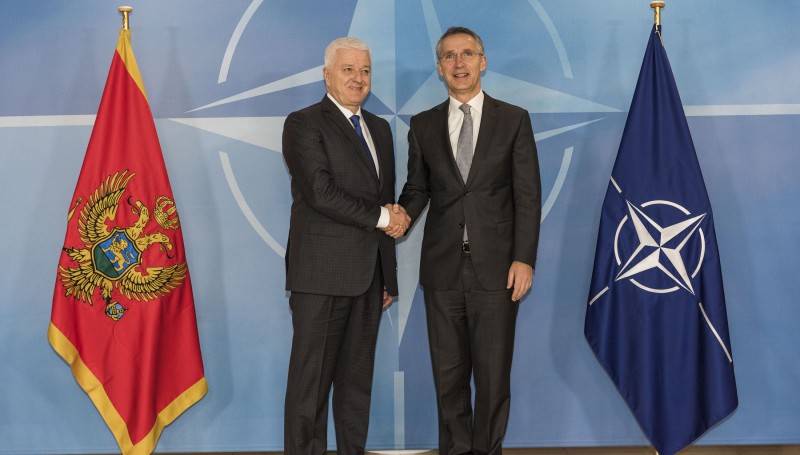
Anti-NATO agenda tvrdokornih nacionalističkih krugova u Srbiji i njihovih sledbenika u manjem BH entietu i Crnoj Gori, dodatno je ojačana negativnim globalnim trendovima nastalim u odnosima između Rusije i Zapada usled čega su, za spoljnopolitičke aspiracije zvanične Moskve, posebno interesantnim postali oni delovi Balkana u kojima je Rusija vekovima unazad imala tradicionalna uporišta uticaja. Usled nastalih okolnosti ovaj deo sveta postao je gotovo idealan kandidat za ulogu monete za potkusurivanje u realizaciji nerealnih globalnih ambicija aktuelnog ruskog predsednika Vladimira Putina da na sebe preuzme ulogu izazivača dosadašnjoj neprikosnovenoj svetskoj dominaciji Sjedinjenih Američkih Država.
Iz tih razloga Rusija je, počev još od 2006. godine, nastojala da na Balkanu, kao neintegrisanom prostoru smeštenom u pozadini najisturenijih spoljnih istočnih granica NATO-a, uspostavi što širi spektar svog uticaja počev od zaokruživanja energetske zavisnosti regiona od Rusije, pa sve do pojačanog obaveštajnog, medijskog i propagandnog prisustva i delovanja u regiji.
U uslovima nepotpune integrisanosti regiona u sistem kolektivne bezbednosti pod okriljem NATO-a, postojala je stalna opasnost od ponovnog aktiviranja starih zamrznutih antagonizama koja je, po pravilu, dodatno bila pojačavana stalnim intenzivnim mešanjem zainteresovanih stranih sila. U odsustvu slobodne kopnene veze sa regionom, za Rusiju i realizaciju njenog koncepta hibridnog ratovanja od ključnog je zanačaja bilo to da Crna Gora, kao jedina priobalna zemlja regiona van NATO-a, ostane vojno „neutralna“ i time prohodna za eventualne ruske akcije u dubini Balkanskog poluostrva.
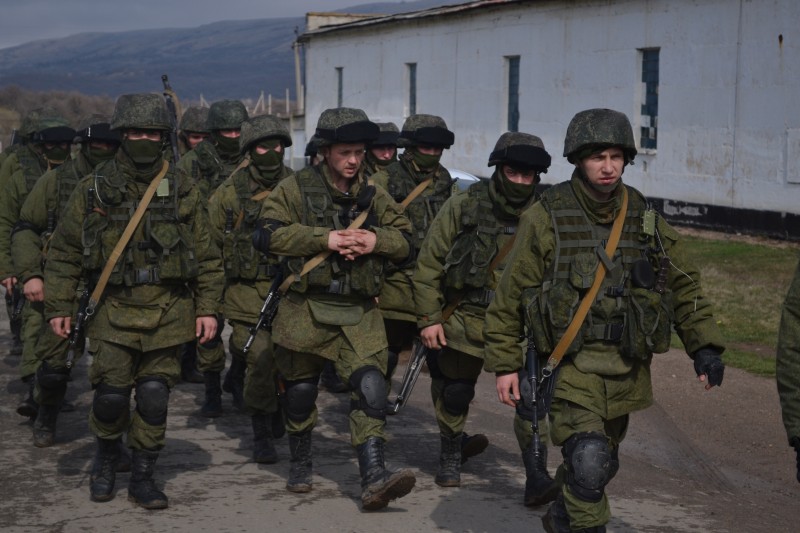
U tom cilju Rusija je, neposredno nakon pada Miloševićevog režima, preko tadašnjeg predsednika SRJ Vojislava Koštunice pokušala da za potrebe svoje mornarice dobije vojnopomorsku bazu u Kumboru u Crnoj Gori, baš kao što je, s druge strane, namenski usmeravala investicione aktivnosti svojih državljana u smeru obimnog ulaganja u kupovinu nekretnina na crnogorskom primorju, nastojeći na taj način da ojača ekonomske veze Crne Gore sa Rusijom i time obezbedi dodatne izvore meke moći i kanale za rusko prisustvo i uticaj u toj zemlji.
Opasnost od ponovnog oživljavanja decenijama unazad taloženih regionalnih protivrečnosti, dodatno je pojačana zaoštravanjem nesporazuma na relaciji Zapad-Rusija povodom ukrajinske krize i rata u Siriji. Tako je, po ruske interese na Balkanu, posebno nepovoljno zvučala već sama najava da bi Crna Gora mogla da dobije poziv za članstvo u NATO, čime bi se zatvorio i poslednji preostali koridor kojim bi Rusija eventualno mogla da, u uslovima blokade od strane NATO-a, u srce regiona transportuje logistiku neophodnu za vođenje hibridnog rata.
Već tada je bilo jasno da će upravo integracijom Crne Gore u evroatlantske strukture biti zatvoren balkanski bezbednosni prsten koji sačinjavaju zemlje članice NATO-a, a koji potpuno okružuje one države koje još uvek nisu postale integralni deo kolektivnog sistema bezbednosti na Balkanu i kao takve predstavljaju potencijale izvore konflikata u regionu. Tim činom, ali i što skorijim prijemom Makedonije u članstvo NATO-a, [6] nepovratno će biti okončana bezbednosna dilema regije koja napokon postaje integrisani deo sistema kolektivne bezbednosti za čije je održavanje zadužen isključivo Severnoatlantski savez. Takvim razvojem događaja stiču se suštinski uslovi da sve zemlje regiona budu zaštićene od potencijalnih spoljašnjih bezbednosnih izazova, ali i opasnosti od upotrebe sile u rešavanju međusobnih nesporazuma.
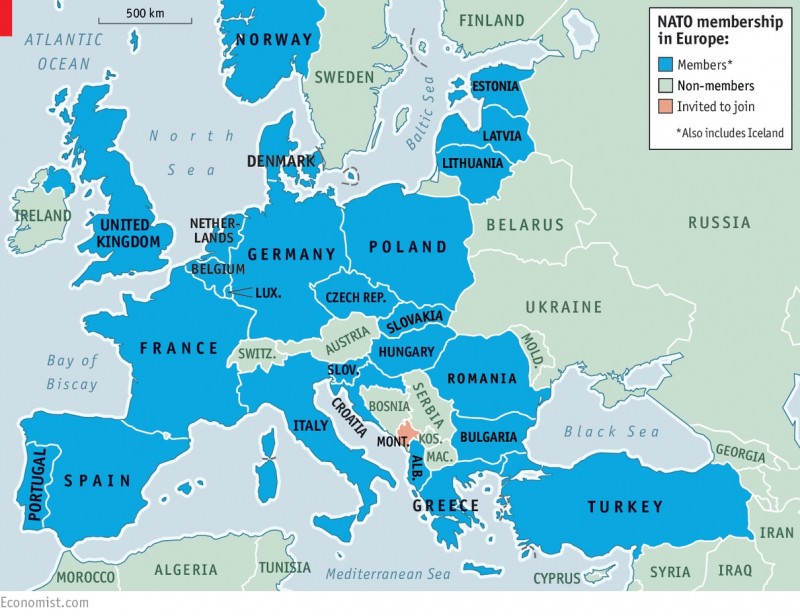
Sa vojno-strategijskog stanovišta nemogućnost vojne penetracije Rusije u ovom delu sveta, u sferi iracionalnih snova ostaviće preživele velikodržavne projekte u regionu, naročito ambicije aktuelnih entitetskih vlasti u Banjaluci da dugotrajnim potkopavanjem funkcionalnosti Bosne i Hercegovine kao države, jednog dana ishoduju otcepljenje manjeg BH entiteta i njegovo pripajanje Srbiji. Iako ove ideje ne uživaju podršku zvaničnih državnih struktura Srbije, poslednjih godina u nekim intelektulanim i politički uticajnim krugovima u zemlji bilo je primetno forsiranje ideje o “prirodnoj i samorazumljivoj kompenzaciji” Srbiji za gubitak Kosova. [7] Forsiranje realizacije te ideje bilo je direktno zasnovano na uverenju, nastalom nakon nasilnog pripajanja Krima Rusiji, o mogućoj vojnoj podršci zvanične Moskve u njenoj eventualnoj realizaciji. Eliminacijom te mogućnosti, praktično je nestalo jedino moguće pogonsko gorivo za praktičnu realizaciju bilo kakvih pokušaja prekrajanja međunarodno priznatih granica na Balkanu. Uostalom i Dodikovo tiho odustajanje od najavljenog referenduma o tužilaštvu BiH, ali i izostanak bilo kakvih akcija nakon referenduma o Danu Republike, bilo je direktna posledica saznanja da u sprovođenju te odluke neće uživati podršku zvaničnog Beograda i očigledne nemogućnosti da, u slučaju dalje eskalacije, od Rusije dobije bilo kakvu drugu vrstu pomoći osim političke i finansijske. [8]
Upravo zbog jasne svesti o predstojećem istiskivanju svog uticaja sa Balkanskog poluostrva, zvanična Moskva je, nimalo demokratskim metodama, na sve moguće načine nastojala da u poslednjem trenutku spreči prijem Crne Gore u NATO. [9] [10] Ti pokušaji su kulminirali neuspelim pokušajem izvođenja državnog udara u Podgorici nakon čega je bes Rusije prema najmanjoj jadranskoj državi dostigao svoju verbalnu kulminaciju. [11] Međutim, dok su ruski zvaničnici uvredama i optužbama na račun Crne Gore zapravo prikrivali svoju realnu nemoć na terenu, njihova stvarna pažnja bila je usredsređena na disciplinovanje Srbije koja je, tokom pokušaja državnog udara u Crnoj Gori, odigrala ulogu koja je prilično razbesnela zvanični Kremlj.
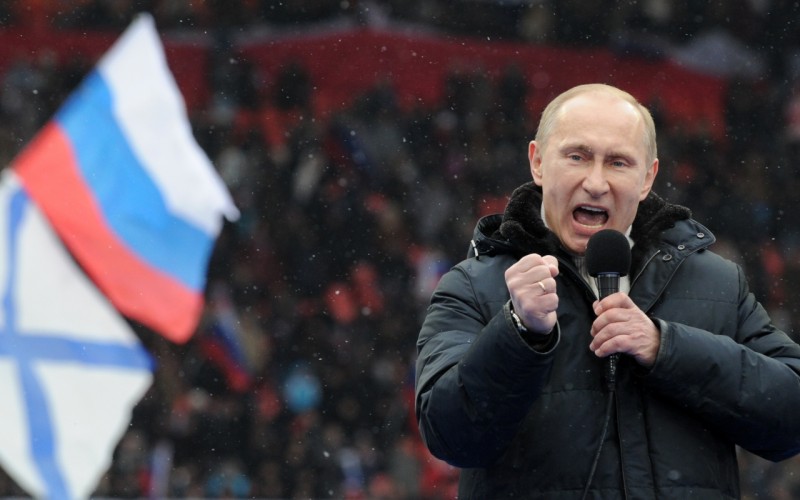
Iako Srbija nije javno iznosila detalje o učesnicima i njihovim ulogama u organizaciji neuspelog ruskog prevrata u Podgorici, službe i vlada u Beogradu odigrali su značajnu ulogu u sprečavanju realizacije krvavog plana Putinovih obaveštajaca. [12] Zbog toga je, svega nekoliko dana nakon događaja u Crnoj Gori, Beograd posetio šef ruskih tajnih službi Nikolaj Petrušev, [13] a nedugo potom u šumi pored kuće roditelja tadašnjeg premijera Srbije Aleksandra Vučića pronađena je znatna količina oružja dovoljna za napad na premijerovu kolonu i članove njegove porodice. Iako istraga o poreklu naoružanja koje je otkriveno zahvaljujući „dojavi građana“ nije dala odgovor na pitanje o licima koja su oružje ostavila u šumi u Jajincima, [14] u srpskoj obaveštajnoj zajednici javna je tajna da je taj paket bio poruka Vladimira Putina tadašnjem premijeru, a sadašnjem predsedniku Srbije Aleksandru Vučiću. Tome u prilog ide i kasnije Vučićevo ponašanje u vezi sa pokušajem udara u Crnoj Gori o čemu je prestao otvoreno da govori, ali i sve servilniji odnos prema Rusiji koji je kulminirao njegovom posetom Moskvi i nevoljnim pristankom da od Vladimira Putina prihvati nametnuti „poklon“ u vidu šest aviona "mig-292 predviđenih za rashodovanje, čiji će remont Srbiju koštati gotovo kao nabavka istog broja novih aviona! [15]
Pored visokog nivoa ranjivosti od infiltracije uticaja i agresivnih poteza Rusije, zahvaljujući politici vojne neutralnosti i negativnog odnosa javnosti prema NATO-u Srbija se u regionalnoj konstelaciji odnosa snaga nalazi u izuzetno nepovoljnom položaju. Sve tri neuralgične tačke koje su identifikovane kao potencijalni uzroci mogućih konflikata na Balkanu, a reč je o situaciji u Bosni, na severu Kosova i Makedoniji, Srbiju izlažu opasnosti od sukoba sa nekom od članica NATO i tim savezom u celini. U slučaju pokušaja nasilnog otcepljenja Republike Srpske od Bosne i Hercegovine izvesno je da bi taj čin bio sprečen intervencijom Hrvatske što bi Srbiju stavilo pred nemoguć izbor između pasivnog posmatranja te, za nju neprihvatljive situacije ili ulaska u gotovo izvesni sukob sa Alijansom i neku vrstu reprize događaja iz 1999. godine. Slična situacija može se dogoditi i u slučaju sukoba na severu Kosova o čijoj se bezbednosti staraju snage KFOR-a, kao i u slučaju dalje destabilizacije Makedonije u kojoj se prelamaju interesi čak tri članice NATO i neutralne Srbije. Iz navedenih razloga primarni nacionalni interes Srbije jeste očuvanje stabilnosti u regionu što se dijametralno razlikuje od interesa Rusije koja nastoji da svoje pozicije na Balkanu pošto poto očuva kroz stvaranje antagonizama u koje bi u jednom trenutku bio uvučen i sam NATO, a Rusija se pojavila kao faktor koji ima moć da odlučuje o ratu i miru u regionu.
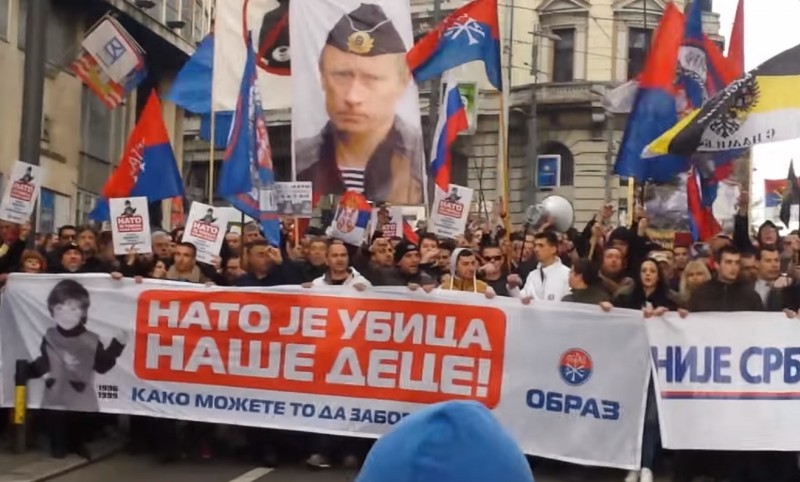
Svesne pobrojanih potencijalnih opasnosti i pojačanog destruktivnog delovanja Rusije u regionu, zapadne diplomatije su pokrenule proces ubrzanog rešavanja pitanja članstva Makedonije u NATO što je do sada bilo sprečavano beskompromisnim stavovima Grčke u, prilično besmislenom, sporu koji je ta zemlja pokrenula oko imena Makedonije. [16] Pored rešavanja tog, do sada zanemarenog pitanja, zapadne zemlje su najavile i snažniju podršku stabilizaciji i podsticanju saradnje u regionu kroz finansijsku potporu zajedničkim regionalnim projektima koji bi svaki budući sukob među balkanskim zemljama učinili previše skupim i neprihvatljivim. Repozicioniranje evroatlantskih struktura u zemljama regiona koje su za sada ostale van bezbednosnog kišobrana NATO-a, neminovno će biti praćeno pojačanim suprotstavljanjem rastućoj ruskoj propagandi koja je eskalirala nakon aneksije Krima i sukoba u Ukrajini. U pokušaju da dodatno ojača i učvrsti izvore svoje meke moći u ovom delu sveta, Rusija je preko svojih fondacija logistički i finansijski pomogla osnivanje na stotine organizacija i paramedija u Srbiji, Kosovu, Crnoj Gori, Bosni i Hercegovini i Makedoniji. Iako te organizacije u međuvremenu nisu dobile na masovnosti, one su uspele da simuliraju lažno mnoštvo i na taj način izvrše određeni uticaj pre svega u onim sredinama pretežno naseljenim stanovništvom srpske nacionalnosti što zvaničnom Beogradu značajno otežava privrženost politici regionalne stabilnosti, ali i realizaciju zajedničkih projekata.
Pored dalekosežnog vojno-bezbednosnog i strategijskog značaja pristupanja Crne Gore NATO-u, ovaj čin će imati i veoma bitne pozitivne političke posledice po demokratske procese u čitavom regionu. Primer postepenog sazrevanja crnogorskog društva od tačke žarišta najortodoksnijeg balkanskog rusofilstva do realizacije vizionarskog državničkog poduhvata modernizacije zemlje tokom kojeg je najpre ostvarena njena nezavisnost, a potom i uspešno okončan proces pristupanja NATO-u, može poslužiti kao model i primer za nastavak promena koje se poslednjih godina događaju i u samoj Srbiji.
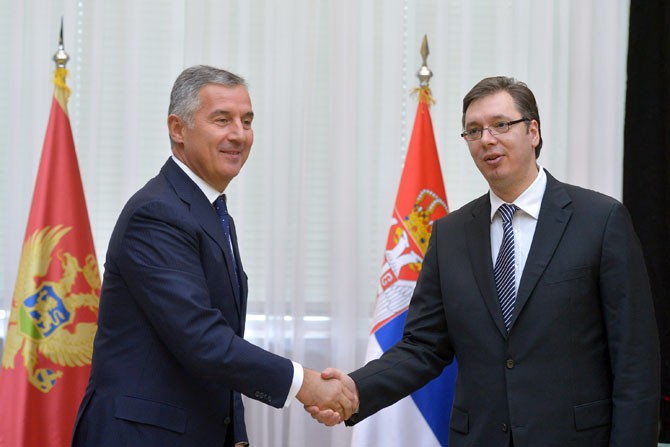
Na isti onaj način na koji je Milo Đukanović svoj politički autoritet iskoristio za iniciranje i realizaciju značajnih političkih iskoraka kojima se crnogorsko društvo kasnije postepeno prilagođavalo, danas i Aleksandar Vučić ima priliku da svojim političkim autoritetom i podrškom koju uživa pokrene i sprovede preko potrebne reforme u Srbiji čija je društvena stvarnost podjednako složena kao i ona koja postoji u Crnoj Gori. Dovoljno je u tom smislu prisetiti se velikih otpora antidržavne opozicije uoči referenduma o nezavisnosti Crne Gore koja je nakon proglašenja nezavisnosti ipak bila primorana da se prilagodi novim okolnostima i prihvati nešto čemu se do tada radikalno protivila. Isto tako, za očekivati je da će nakon učlanjenja Crne Gore u NATO protivnici te odluke shvatiti njenu ireverzibilnost, što će ih naterati da još jednom koriguju i novonastaloj realnosti prilagode svoje tvrdokorne političke stavove.
Nešto slično u Srbiji već se dogodilo nakon potpisivanja Briselskog sporazuma koji je, uprkos radikalnom protivljenju ultranacionalističkih snaga u zemlji, danas postao realnost koju više niko ne može da ospori. Po istom modelu, kada za to budu sazreli uslovi, donosioci strateških političkih odluka u Beogradu moći će da se uhvate u koštac sa izazovima procesa pristupanja Srbije NATO-u, koji je istorijska neminovnost i jedini stvarni garant dugoročne bezbednosti zemlje. Odsečeni od Rusije i uhvaćeni u maticu istorijskih neminovnosti, za sada dominantni protivnici tog članstva moći će, poput svojih istomišljenika u Crnoj Gori, jedino da se prilagode novonastaloj realnosti. Do tada, srpsko društvo će najpre morati da se navikne na novu okolnost da je region Zapadnog Balkana sada u potpunosti u zoni ekskluzivnog uticaja NATO-a i sve dalje od opasnosti da se, politički sve udaljenija Rusija, u budućnosti nađe u prilici da pokuša da ugrozi postojeći sistem kolektivne bezbednosti na Balkanu.
